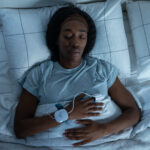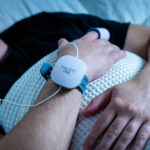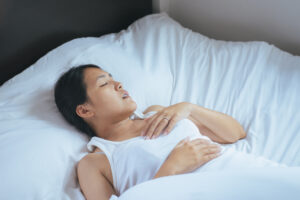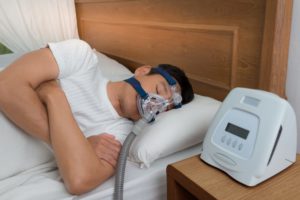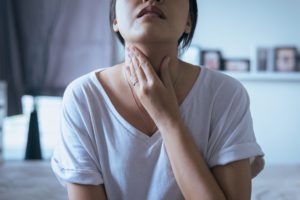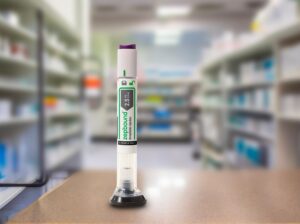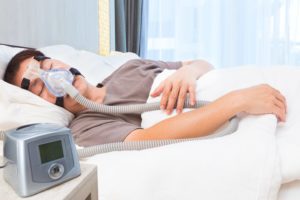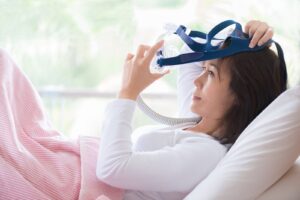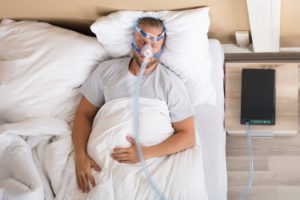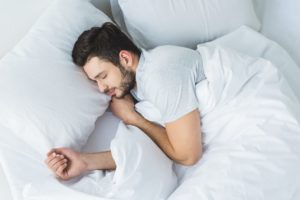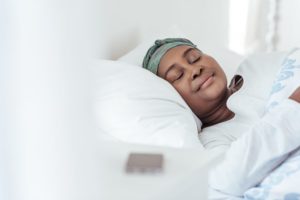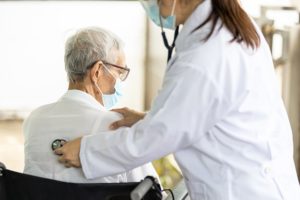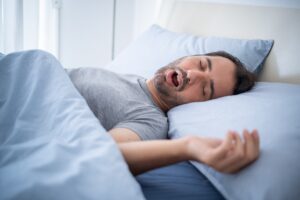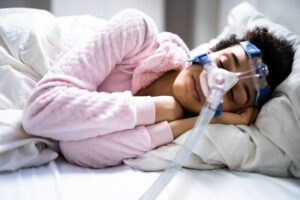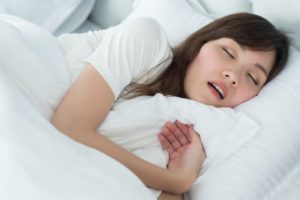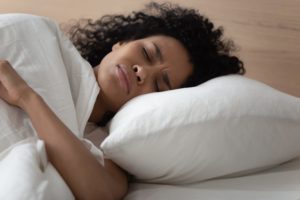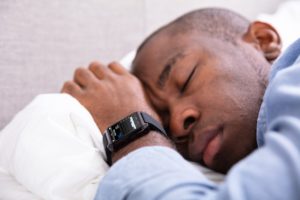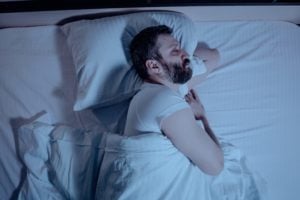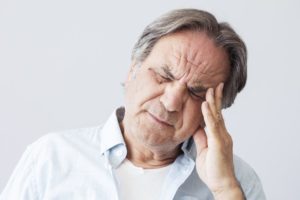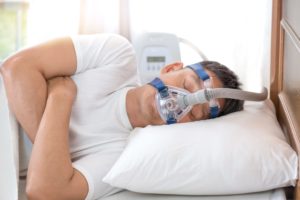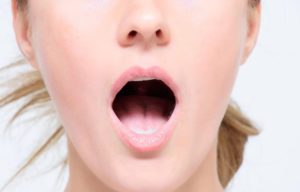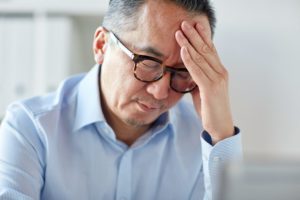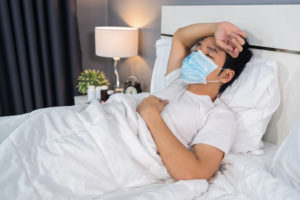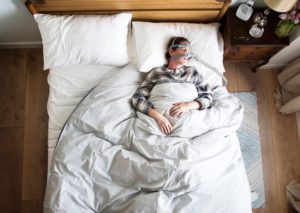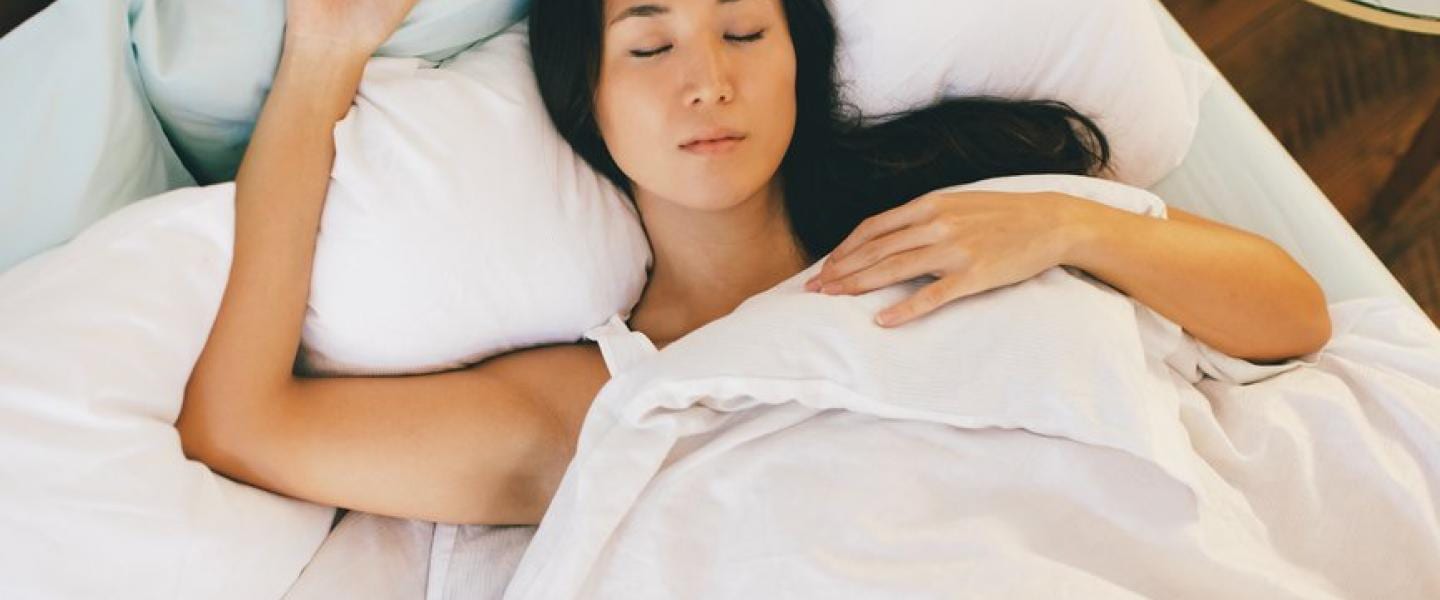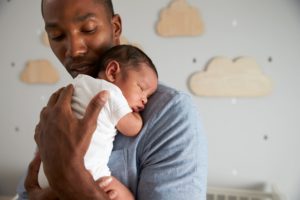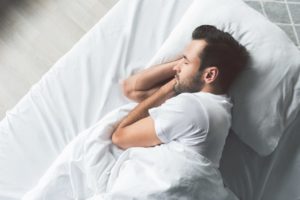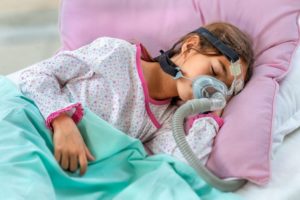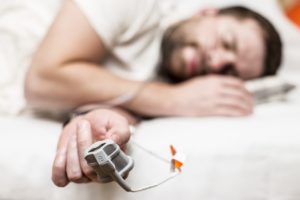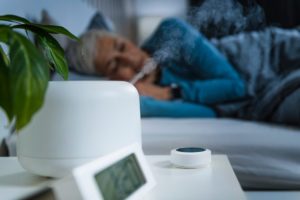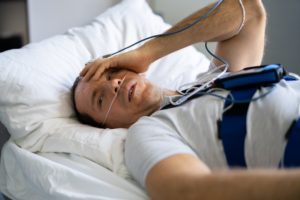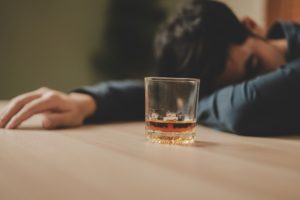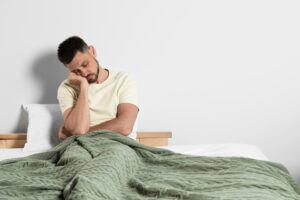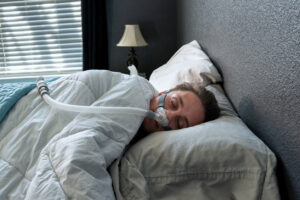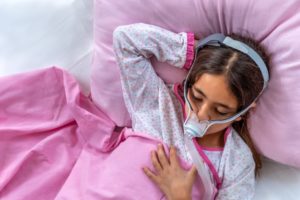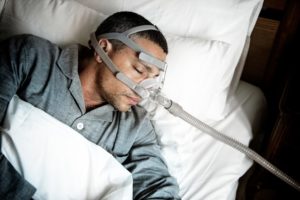When you buy through our links, we may earn a commission. Products or services may be offered by an affiliated entity. Learn more.
Can Sleep Apnea Cause Seizures?
Although the connection between sleep apnea and epilepsy is not fully understood, evidence suggests that sleep apnea has the potential to cause or worsen seizures .
Seizures occur because of irregular brain activity that leads to involuntary sensations and movements. Sleep apnea, which involves disrupted breathing during sleep, can affect the brain and body in ways that may make seizures more likely. Appropriate diagnosis and treatment of sleep apnea can enhance sleep and may reduce the severity of seizures.
The Connection Between Sleep Apnea and Seizures
Studies have found a correlation between sleep apnea and seizures, but much remains unknown about the link between them. While more research is necessary, there are indications that sleep apnea may contribute to seizures.
Numerous studies have found that obstructive sleep apnea (OSA), which involves a narrowed airway during sleep, is common among people with epilepsy, a condition involving recurring seizures. OSA is especially common in people who have persistent epilepsy and more frequent seizures.
Think You May Have Sleep Apnea? Try an At-Home Test
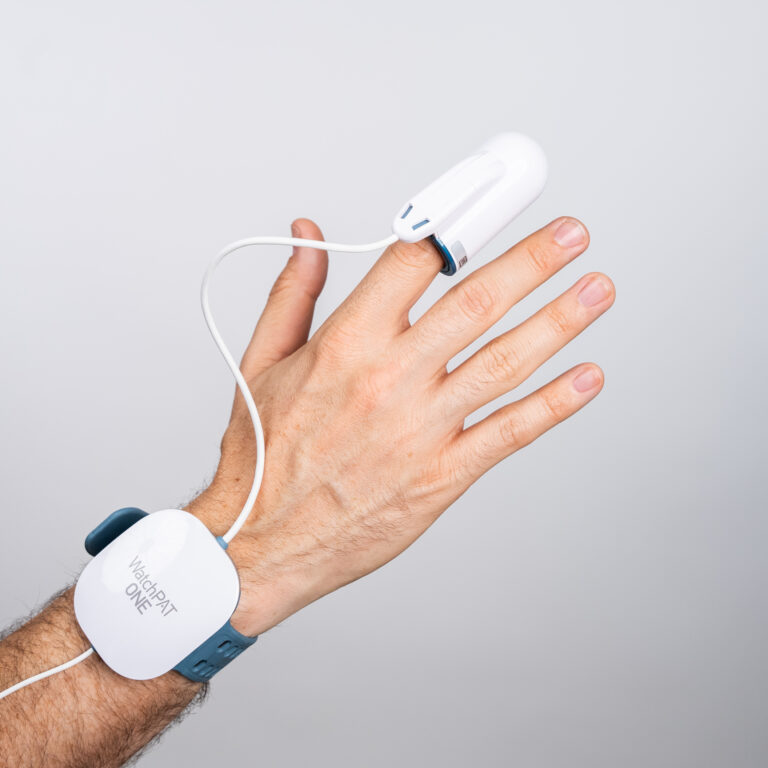
our partner at sleepdoctor.com
Save 54% on your Sleep Test Today
Shop Now“Truly grateful for this home sleep test. Fair pricing and improved my sleep!”
Dawn G. – Verified Tester
People who have both epilepsy and OSA are also more likely to have worse symptoms and health complications. For this reason, some experts believe that these conditions may exacerbate one another.
Although research is ongoing to better understand the connection between sleep apnea and epilepsy, there are several potential ways that OSA may contribute to seizures.
- Brain activity changes: During sleep, there are cycles of different types of brain activity, and nocturnal seizures can arise out of certain stages of sleep. OSA causes repeated brief awakenings, which may interfere with sleep cycles and prompt brain activity associated with seizures.
- Poor sleep: People with untreated OSA have low-quality sleep. For some people, this insufficient or fragmented sleep could be a trigger for seizures.
- Cardiovascular effects: Interrupted breathing from OSA can lower oxygen levels, cause an irregular heart beat, and contribute to high blood pressure. These cardiovascular impacts of OSA may induce changes in the nervous system that make seizures more likely.
It is not known whether there is a connection between seizures and another type of sleep apnea called central sleep apnea (CSA). In CSA, the brain fails to properly regulate breathing. While CSA can occur alongside epilepsy, there is no evidence to date that CSA causes seizures.
“We don’t believe that sleep apnea causes someone to develop a seizure disorder. But in those that have a seizure disorder, part of controlling and preventing seizures involves getting sufficient quality sleep and untreated sleep apnea impedes that goal. Anyone with a seizure disorder should be screened for having symptoms of sleep apnea.”
Dr. David Rosen, Sleep Physician
How Common Are Sleep Apnea-Related Seizures?
The frequency of sleep apnea-related seizures is unknown because it has not been proven that sleep apnea directly triggers seizures.
That said, studies have found that around one-third of people with epilepsy have OSA. Most people with epilepsy experience seizures during the day, but up to 15% have seizures that occur during sleep.
What Are the Symptoms of a Sleep Apnea-Related Seizure?
Because it is hard to know if a seizure is related to sleep apnea, there are no distinct symptoms for sleep apnea-related seizures compared to other seizures. In general, seizures can involve many symptoms, including involuntary physical movements, convulsions, and changes to awareness or perception.
People with epilepsy are more likely to have OSA, and the most common symptoms of OSA include:
- Slowed or stopped breathing during sleep
- Frequent snoring that may involve sounds of choking or gasping
- Difficulty staying awake during the day
- Morning headaches
Both epilepsy and OSA can contribute to similar symptoms like impaired thinking, feelings of depression, and sleepiness or a lack of energy during the day.
How Are Sleep Apnea-Related Seizures Diagnosed?
Regardless of whether a person has sleep apnea, seizure disorders are diagnosed with a process that involves a review of symptoms and health history, a physical exam, and other medical tests.
A doctor gathers important information by asking questions about the nature of a person’s seizure symptoms. If needed, laboratory tests, imaging tests, or tests that measure brain activity can be ordered to obtain more information.
When discussing health history, a doctor may ask questions to find out about whether other health issues, including sleep disorders, could be causing seizures. For people with symptoms of sleep apnea, the diagnostic process for OSA includes an overnight sleep study.
Treatment and Prevention for Sleep Apnea-Related Seizures
It is important for anyone who has a seizure to get proper medical attention. Prompt emergency care should be sought if a person has never had a prior seizure or if seizures are prolonged or worsening. A doctor can help prescribe appropriate treatment, which may involve addressing an underlying cause or usings medications or other therapies to prevent seizures.
For people who have seizures and OSA, effective treatment for seizures may improve breathing during sleep. Treating OSA may also reduce the frequency of seizures, but more studies are needed to identify the optimal treatment plan.
Using positive airway pressure (PAP) therapy, such as with a CPAP machine, can effectively treat OSA. Some research suggests that CPAP therapy may reduce epileptic seizures. While alternatives to CPAP can help treat OSA, there is limited evidence about whether any of them reduce seizures in people with both OSA and epilepsy.

Still have questions? Ask our community!
Join our Sleep Care Community — a trusted hub of sleep health professionals, product specialists, and people just like you. Whether you need expert sleep advice for your insomnia or you’re searching for the perfect mattress, we’ve got you covered. Get personalized guidance from the experts who know sleep best.
References
8 Sources
-
Adamolekun, B. (September 2022). Seizure disorders. MSD Manual Professional Version., Retrieved October 13, 2023, from
https://www.msdmanuals.com/professional/neurologic-disorders/seizure-disorders/seizure-disorders -
Schachter, S. (September 2023). Comorbidities and complications of epilepsy in adults. In P. Garcia & J. Dashe (Ed.). UpToDate., Retrieved August 25, 2023, from
https://www.uptodate.com/contents/comorbidities-and-complications-of-epilepsy-in-adults -
Sivathamboo, S., Perucca, P., Velakoulis, D., Jones, N. C., Goldin, J., Kwan, P., & O’Brien, T. J. (2018). Sleep-disordered breathing in epilepsy: epidemiology, mechanisms, and treatment. Sleep, 41(4).
https://pubmed.ncbi.nlm.nih.gov/29394413/ -
Sethi N. K. (2022). The Relationship Between Epilepsy, Obstructive Sleep Apnea, and Treatment Outcome. Sleep medicine clinics, 17(4), 639–645.
https://pubmed.ncbi.nlm.nih.gov/36333082/ -
Louis, E. & Foldvary-Schaefer, N. (September 2023). Sleep-related epilepsy syndromes. In A. Avidan, P. Garcia, & J. Dashe (Ed.). UpToDate., Retrieved August 25, 2023, from
https://www.uptodate.com/contents/sleep-related-epilepsy-syndromes -
Gogou, M., Haidopoulou, K., Eboriadou, M., & Pavlou, E. (2015). Sleep apneas and epilepsy comorbidity in childhood: a systematic review of the literature. Sleep & breathing = Schlaf & Atmung, 19(2), 421–432.
https://pubmed.ncbi.nlm.nih.gov/25404374/ -
Vendrame, M., Jackson, S., Syed, S., Kothare, S. V., & Auerbach, S. H. (2014). Central sleep apnea and complex sleep apnea in patients with epilepsy. Sleep & breathing = Schlaf & Atmung, 18(1), 119–124.
https://pubmed.ncbi.nlm.nih.gov/23636561 -
Jo, H., Choi, S., Kim, D., & Joo, E. (2022). Effects of Obstructive Sleep Apnea on Epilepsy, and Continuous Positive Airway Pressure as a Treatment Option. Journal of clinical medicine, 11(7), 2063.
https://pubmed.ncbi.nlm.nih.gov/35407671/


